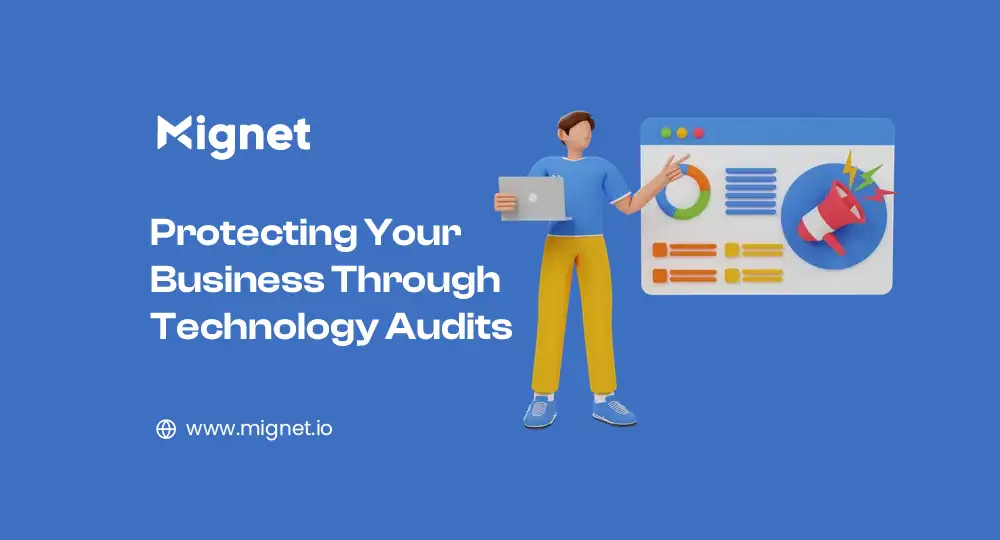
Protecting Your Business: An Essential Guide to Information Technology Audits for Small Business Owners
Table of Contents
In the realm of modern commerce, where technology serves as the backbone of operations, safeguarding your business against digital threats is paramount. As a small business owner, navigating the complex landscape of information technology (IT) security can be daunting. However, with the right knowledge and strategies in place, you can effectively fortify your business against potential risks.
Understanding the Importance of IT Audits
Information technology audits play a crucial role in ensuring the integrity, confidentiality, and availability of your business’s digital assets. These audits involve a systematic evaluation of your IT infrastructure, policies, and procedures to identify vulnerabilities, assess compliance with regulations, and enhance overall security posture. By conducting regular IT audits, you can proactively detect and mitigate security weaknesses before they escalate into major breaches.
Key Components of an IT Audit
A comprehensive IT audit encompasses various elements, including:
Infrastructure Assessment: Evaluating the robustness of your network architecture, hardware components, and software systems to identify potential points of failure or weaknesses.
Data Security Analysis: Reviewing data storage, transmission, and access mechanisms to ensure sensitive information remains protected against unauthorized disclosure or manipulation.
Policy and Procedure Review: Examining existing IT policies, procedures, and controls to verify alignment with industry best practices and regulatory requirements.
Risk Management Evaluation: Assessing the effectiveness of risk management processes in identifying, prioritizing, and mitigating IT-related risks to the business.
Implementing IT Audit Best Practices
To maximize the effectiveness of IT audits and strengthen your business’s security posture, consider implementing the following best practices:
Regular Assessments: Conduct IT audits at regular intervals to stay ahead of emerging threats and compliance requirements.
Engage Expertise: Seek assistance from qualified IT professionals or consultants with expertise in cybersecurity and audit methodologies.
Document Findings: Maintain detailed records of audit findings, recommendations, and remediation efforts to track progress and demonstrate compliance.
Continuous Improvement: Use audit findings as a basis for implementing continuous improvement initiatives aimed at enhancing security controls and practices.
In an era of rapid technological advancement, the proactive management of IT infrastructure is essential for small business owners in areas like Lancaster, York, and Harrisburg. Conducting an information technology audit is vital for businesses seeking to safeguard their data and ensure the security of their systems. The significance of data security cannot be overstated, as any breach or loss could significantly impact business operations, client trust, and profitability. Regular IT audits help businesses stay updated and secure, providing a foundation for compliance with regulations and industry standards.
Small businesses in Lancaster, PA, face daily risks and security challenges, particularly concerning their IT infrastructure. To address these concerns, we have developed a comprehensive IT audit program tailored to ensure optimal performance, security, and compliance for your company’s IT systems. In this article, we will delve into the importance of IT audits, their necessity for businesses, and how our team can assist you in implementing a customized IT audit solution. Begin securing your business today by scheduling a consultation.
Understanding IT Audits
An IT audit involves a thorough assessment of a company’s technology systems, policies, and processes. The primary goal is to ensure the effectiveness, security, and compliance of these systems with relevant laws and regulations. Key objectives include protecting corporate assets, preserving data integrity, and aligning IT practices with organizational goals.
Auditors evaluate various aspects, including physical and environmental security controls, identity and access management, and business process controls. They identify risks and weaknesses and provide recommendations for enhancing security and compliance. IT audits enable businesses to:
- Identify and address vulnerabilities
- Enhance information management practices
- Strengthen internal controls
- Ensure the reliability and security of information systems
Importance of Information Systems Audits
Information technology audits offer peace of mind by confirming the protection of IT systems, thus preventing potential data breaches. They help businesses understand vulnerabilities and improve overall system functionality and efficiency. Additionally, IT audits ensure compliance with regulations specific to the industry, contributing to the longevity and sustainability of the business.
Information Technology Audit Process
The IT audit process begins with establishing objectives and planning the audit methodology and scope. Data collection involves examining relevant controls and evaluating their effectiveness. Auditors then report their findings, highlighting weaknesses and threats, and provide recommendations for improvement and compliance.
Frameworks for IT Audits
Common frameworks for IT audits include COBIT, COSO, and ISO, each offering guidance on managing IT-related activities and evaluating internal controls. Understanding these frameworks helps businesses select the most suitable approach for their needs.
Choosing Between Self-Audit and Professional Assistance
While some businesses may attempt self-audits, hiring a professional IT service provider is recommended for thorough and efficient audits. Experienced professionals ensure compliance, provide expertise, and deliver tailored solutions for business needs.
Conclusion
In today’s digital landscape, the security of your business is non-negotiable. By prioritizing information technology audits and implementing robust security measures, you can safeguard your business against cyber threats, protect sensitive data, and instill confidence among your customers and stakeholders. Remember, investing in security today can save you from costly breaches and reputational damage tomorrow. Stay vigilant, stay secure.
IT audits are essential for small businesses in Lancaster County, York County, and the Harrisburg areas to identify and mitigate risks, ensure compliance, and optimize IT systems. Partnering with an experienced IT service provider ensures the audit process is conducted effectively and yields valuable insights for improving business operations. Schedule a consultation today to benefit from our expertise and enhance your business’s resilience through effective IT management.
FAQ on Protecting Your Business Through Technology Audits
A technology audit involves a thorough assessment of your business's IT systems, policies, and processes to identify vulnerabilities, ensure compliance with regulations, and enhance security. It's crucial for safeguarding your business against cyber threats and ensuring the integrity of your data.
The primary objectives of a technology audit include protecting corporate assets, preserving data integrity, and aligning IT practices with organizational goals. Additionally, it aims to identify and address vulnerabilities, strengthen internal controls, and ensure the reliability and security of information systems.
The frequency of technology audits depends on various factors, including industry regulations, the complexity of your IT infrastructure, and changes in your business environment. Generally, businesses should conduct audits at regular intervals, such as annually or biennially, to stay ahead of emerging threats and compliance requirements.
A comprehensive technology audit encompasses various elements, including infrastructure assessment, data security analysis, policy and procedure review, and risk management evaluation. These components help identify weaknesses in your IT systems and establish measures to mitigate risks effectively.
A technology audit offers several benefits, including:
- Identifying vulnerabilities and addressing security risks.
- Enhancing information management practices.
- Strengthening internal controls and compliance efforts.
- Ensuring the reliability and security of your information systems.
- Providing insights for improving overall system functionality and efficiency.
The technology audit process typically involves:
- Establishing audit objectives and planning the audit methodology and scope.
- Collecting data by examining relevant controls and evaluating their effectiveness.
- Reporting findings, including weaknesses and threats, and providing recommendations for improvement and compliance.
While some businesses may attempt to conduct technology audits internally, hiring a professional service provider is recommended for thorough and efficient audits. Experienced professionals have the expertise to ensure compliance, provide tailored solutions, and deliver valuable insights for improving business operations.
To get started with a technology audit for your business, consider partnering with a reputable IT service provider that specializes in audit services. They can help you assess your needs, develop an audit plan, and guide you through the process to ensure effective protection of your business through technology audits.
Unlock productivity: Join our Email List
Download Our Profile
Get to know more about Mignet Technologies by downloading our profile.



